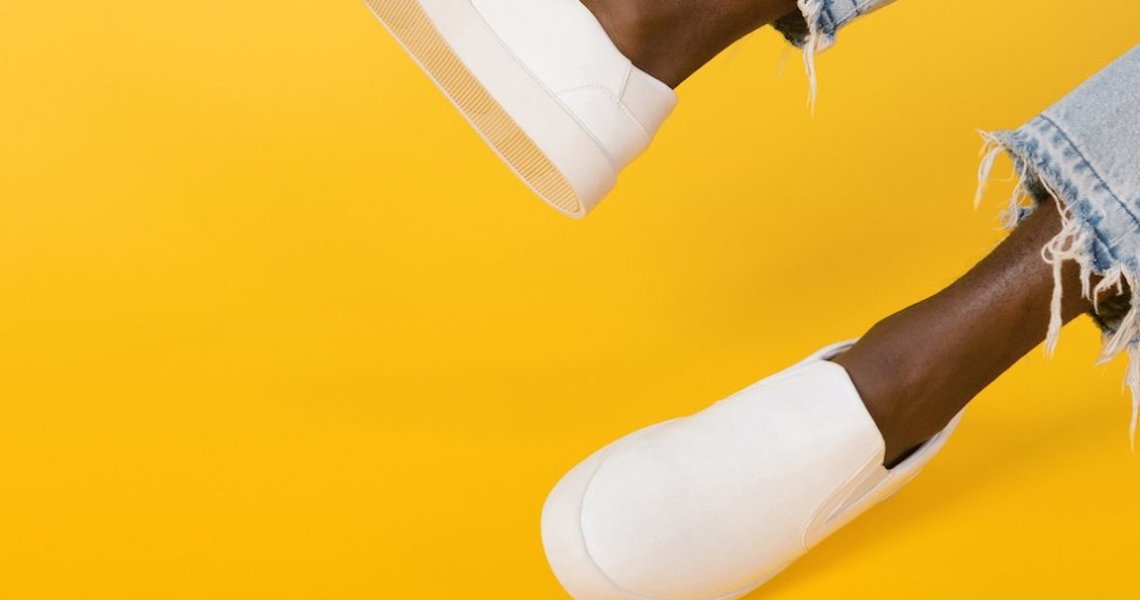This story spotlights discussions taking place at Glossy’s Future of Fashion Summit on October 4-6.
Circularity is a buzzword in fashion right now, with initiatives across the industry launching to extend the lifespan of products. That ranges from Madewell partnering with ThredUp to The RealReal upcycling scraps of damaged clothes into a new collection.
Oftentimes, the greatest friction around circularity comes from getting a product back from the customer before it winds up in a landfill. Co-founders Stuart Ahlum and Chloe Songer are looking to solve that. They’ve made circularity a core focus of their 1-year-old DTC sneaker brand, Thousand Fell.
“The biggest challenge in sustainability for the next 15 years will be how to get product that was shipped out back in a sustainable way and with unit economics that make sense,” Ahlum said, speaking at the Glossy Future of Fashion Summit in Miami on Monday.
Thousand Fell already gives customers a $20 credit toward a new pair of shoes when they bring a pair of its sneakers back to the brand for recycling. But on Tuesday, the brand rolled out a new tech stack feature that makes the process much smoother.
Traditionally, if customers wanted to send their shoes back to Thousand Fell, they’d have to email the brand, receive a shipping label, package the shoes up and mail them, without a good way to track the different steps of that process. The new feature, accessible on the Thousand Fell site, lets customers build a virtual inventory of the Thousand Fell shoes they have in their closet. When they’re ready to send them back, they mark a pair as ready for recycling and immediately get a digital shipping label to print. In another new twist, customers get the $20 credit instantly, rather than having to wait until the shoes arrive back at Thousand Fell. From there, every step of the process, including when a shoe is shipped, received, processed and ultimately recycled is made visible to the customer.
Ahlum said that having this additional level of seamlessness should help take the brand’s circularity to a higher level. Even with the more arduous process that was once in place, Thousand Fell had 30% of its customers engaging with circularity.
Ad position: web_incontent_pos1
“Making it easier to recycle, to track and trace and redeem the credit — all of that reduces friction,” Ahlum said. “And we also see that as a loyalty and engagement driver.”
While obviously not the only factors driving consumption, sustainability and circularity are increasingly some of the reasons consumers, especially socially conscious younger consumers, turn to one brand or retailer over another.
“Resale is great for extending the lifecycle of a luxury product, which is inherently good for the world since it’s creating less waste,” said Elizabeth Layne, CMO of luxury accessories reseller Rebag, who also spoke at the Glossy Fashion Summit. “We see customers coming to us for a lot of reasons, sometimes for price or for selection — and we do see a lot of people shopping resale because of the sustainability of the category.”




